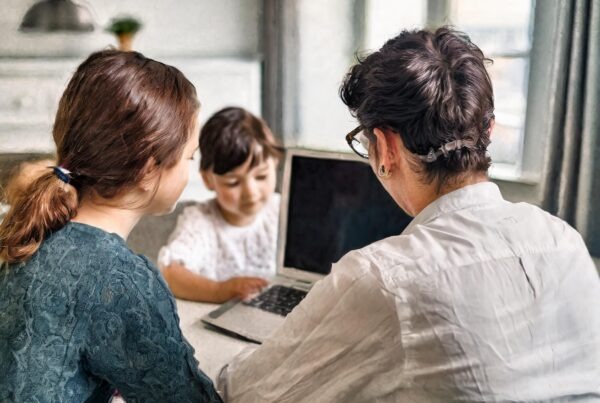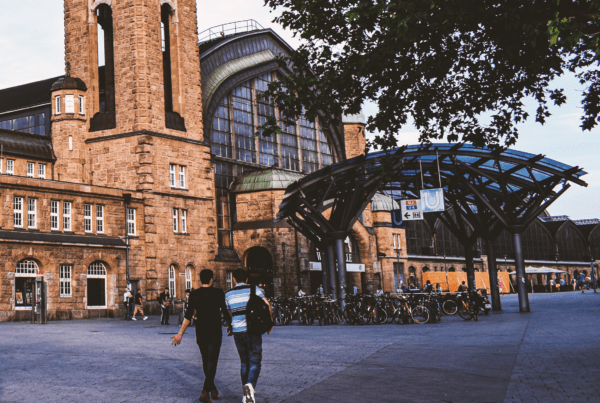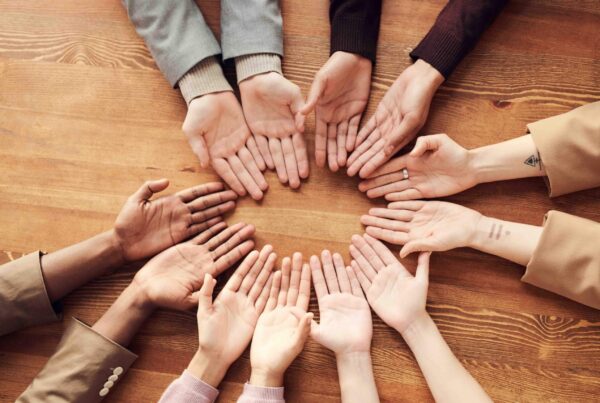Every year on 1 December, World AIDS Day takes place – with a history of more than 30 years. In 2023, the worldwide campaign day will promote the rights of HIV-positive people and calls for a life together without prejudice and exclusion, as well as for prevention measures. Find out how you can get involved on World AIDS Day, how you can show solidarity, and also how you can organise your own campaigns.
What is World AIDS Day, and why is it important?
On World Aids Day, the battle against HIV and the efforts of the Aids Foundation should once again be given more attention to get the focus of media coverage – especially after the Coronavirus pandemic has attracted so much public attention since 2020.
To ensure that the relevance of AIDS support and HIV prevention is not overlooked, the international action day “World AIDS Day” was first proclaimed by the WHO in 1988. From the beginning, it has had a special, annually changing motto. Since 1996, the joint HIV/AIDS programme of the United Nations, UNAIDS, has assigned a motto to World AIDS Day every year until today. The activities of the AIDS aid organisations and other associations in various countries are guided by it. World AIDS Day is therefore organised by UNAIDS and many independent initiatives and activists. It always takes place on 1 December.
In 2023, the motto is “Equalize”, which means that everyone is invited to eliminate the inequalities that block progress in the fight against AIDS.

Credit: Bundeszentrale für gesundheitliche Aufklärung (BZgA)
This action day also intends to draw attention to all people who suffer severely from their infection or from the side effects of the therapy, as well as to remember the people who have died as a result of an HIV infection.
In addition, World AIDS Day is an opportunity to learn about the HI virus and AIDS in general, to share information, to engage in prevention, and to break down prejudices against people with the disease and offer support to relatives through a day of fellowship.
Read up: What you need to know about HIV and Aids
HIV is a virus, the resulting disease is called AIDS. HIV stands for the English abbreviation “Human Immunodeficiency Virus”. And it is primarily transmitted by sexual intercourse. However, it also spreads via contaminated injections, especially when taking drugs. Infection with the virus impairs immune defences and makes the body vulnerable to diseases that would usually be unproblematic in non-infected people.
Untreated, an HIV infection can lead to AIDS. That is because: without treatment, HIV damages the body’s defences to such an extent that the disease becomes fatal AIDS. The clinical manifestation of AIDS usually occurs years after an infection with HIV. The abbreviation “Aids” stands for “Acquired Immunodeficiency Syndrome”.
“Today, however, HIV is thankfully well treatable. Medication can prevent the virus from multiplying in the body. In most cases, one pill a day is all it takes. However, a cure is not yet possible,” declares the German Federal Ministry of Health (BMG). The ministry’s information page further states that an HIV testing makes sense if a person has been in a situation of risk where an HIV infection cannot be ruled out. A prenatal check-up for HIV is also recommended.
In order to detect an HIV infection, anonymous and free HIV tests are available at many health offices in Germany. You can also be tested for HIV at medical centres and some AIDS federations.
Today, you can grow old with HIV and live happily like everybody else!
The German Federal Office of Public Health (RKI) also provides answers to frequently asked questions about HIV infection and AIDS on their FAQ page (in German). Here you can find out more about questions such as “How long does HIV survive outside the body?”, “How high is the likelihood of HIV transmission with different sexual practices?” or “How does the medication work?”. In addition, the RKI’s comprehensive guidebook on HIV (in German) infection and AIDS is available.
How can you protect yourself from HIV?
How can you protect yourself from HIV infection? The answer is simple!
- Condoms protect you during sex.
- HIV therapy prevents transmission during sex and to a child during delivery.
- People with a high risk of HIV can take a preventive medication (“PrEP”, pre-exposure prophylaxis).
You can find more information on protection against HIV, HIV testing and counselling services in Grmany at the LIEBESLEBEN campaign of the Federal Centre for Health Education (BZgA), at the Deutsche Aidshilfe and on YouTube.
If you are HIV-positive and need help, get information from the German AIDS Foundation.
“So far, research on a vaccination against HIV is ongoing – but there are alternative ways to protect oneself against HIV,” explains the German television channel ZDF in a video (in German).
How you can take action on World Aids Day
- Raising awareness
Talk about the topic of HIV and AIDS and don’t be afraid, even if you are not affected, to dismantle prejudices against people affected by the disease. Thereby, wearing the red ribbon, which is a symbol worldwide and stands for acceptance and solidarity with people affected by HIV and AIDS, helps. Especially on World AIDS Day, the red ribbon is visible in many places. And every person who wears it shows: I am taking action and standing in solidarity.
- Create your own campaign
You can also stand up for the rights of HIV patients beyond the red ribbon, by participating in campaigns or by initiating your own campaign. Free material in German is available here from the Federal Centre for Health Education and on the website welt-aids-tag.de. - Share content on social media
Various social media channels offer informative content to share, for example on Facebook, Instagram or TikTok. - Support Aids foundations or make a donation
➱ Deutsche AIDS-Stiftung
➱ Aidshilfe Wien
➱ Aidshilfe Schweiz - Post an online offer on WirHelfen.eu
WirHelfen is your digital neighbourhood help for everyday life and for crises. On WirHelfen.eu, people looking for help can find numerous support offers: locally and also digitally. If you need help yourself, it’s ideal – for example, when going to the authorities, to find information or if you’re just looking for someone to talk to.
Hilfe anbieten und finden. WirHelfen. Wir verbinden.







